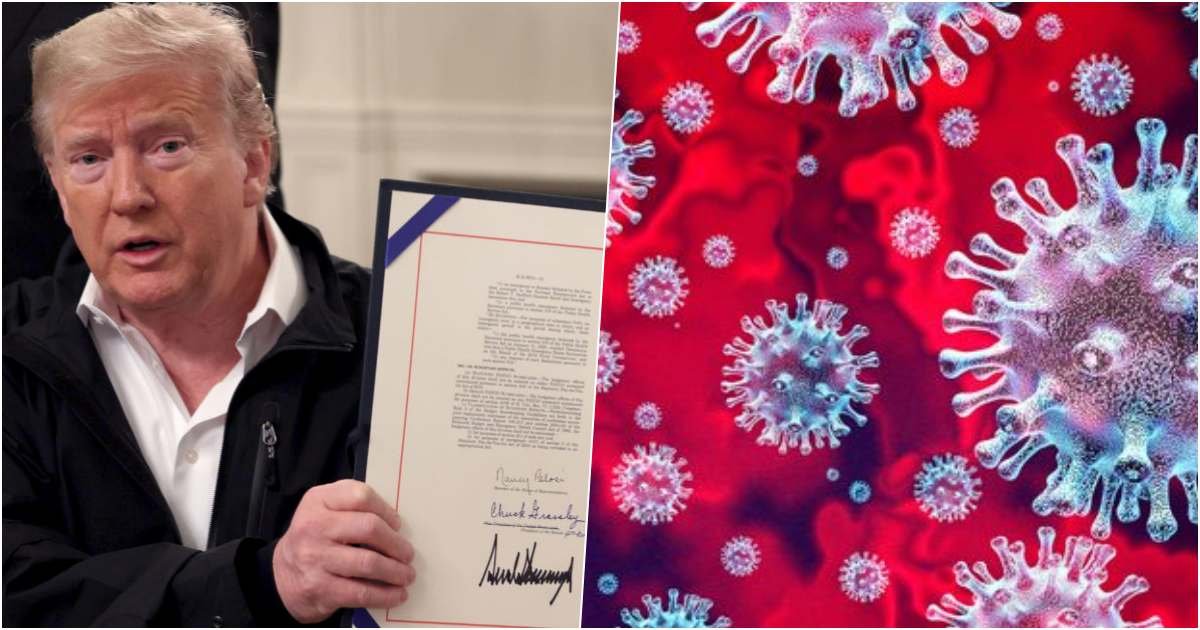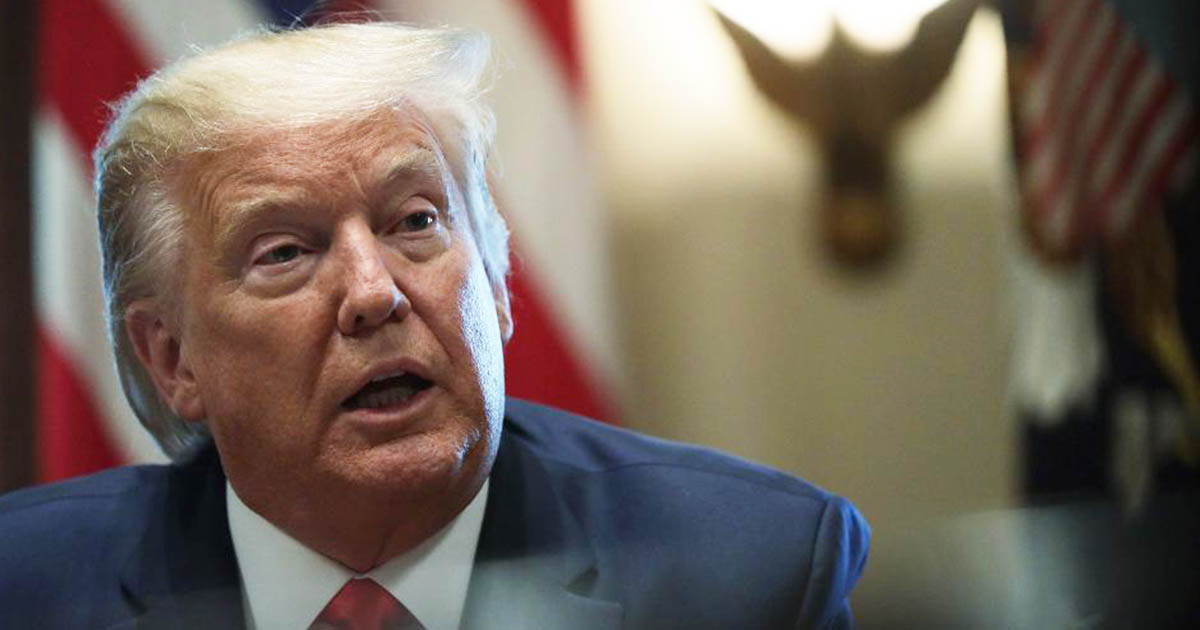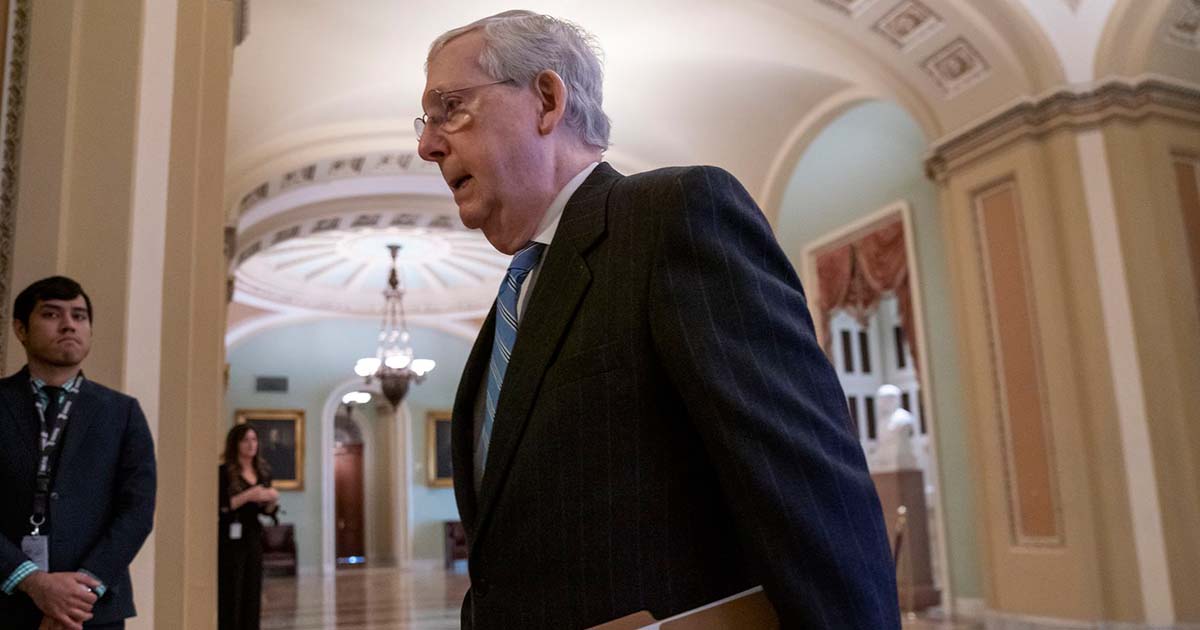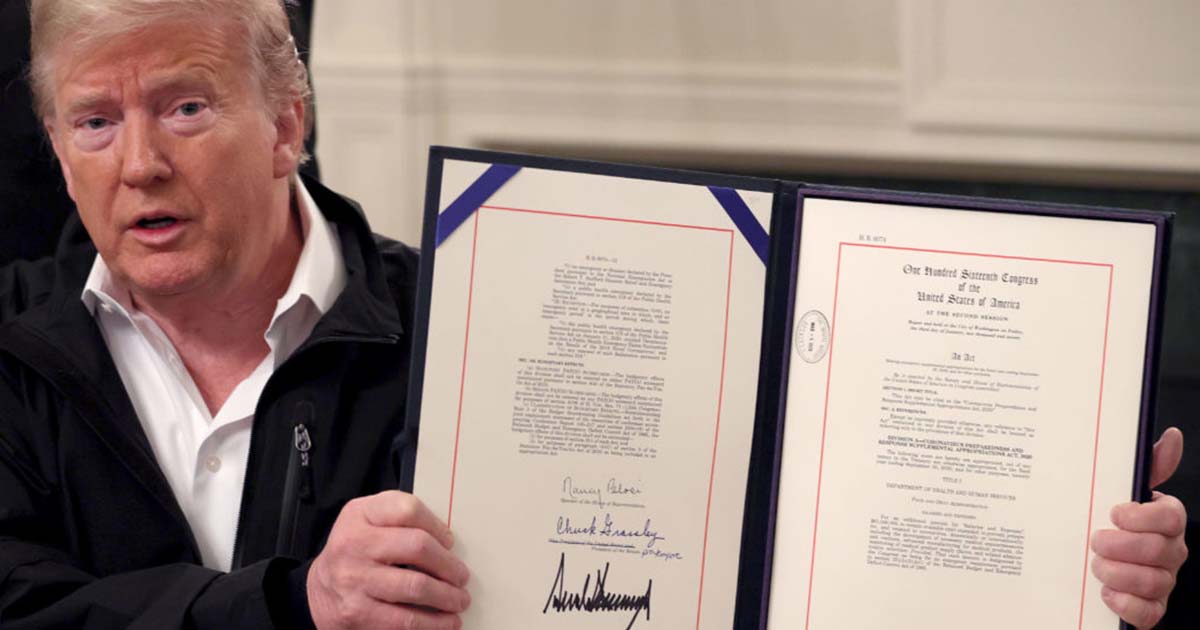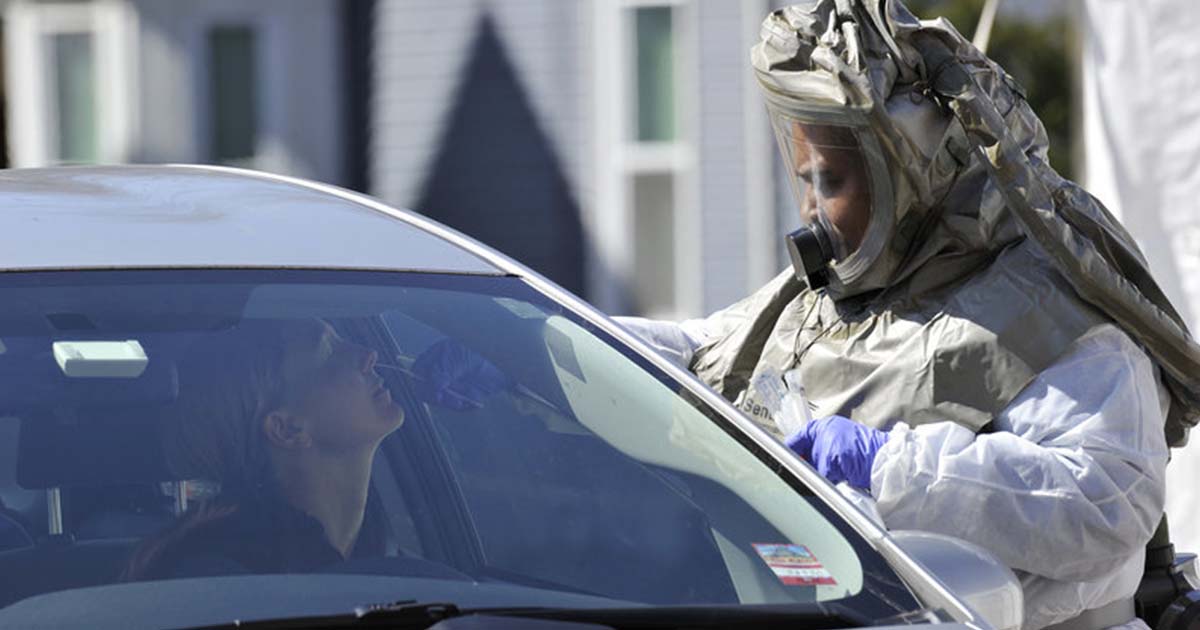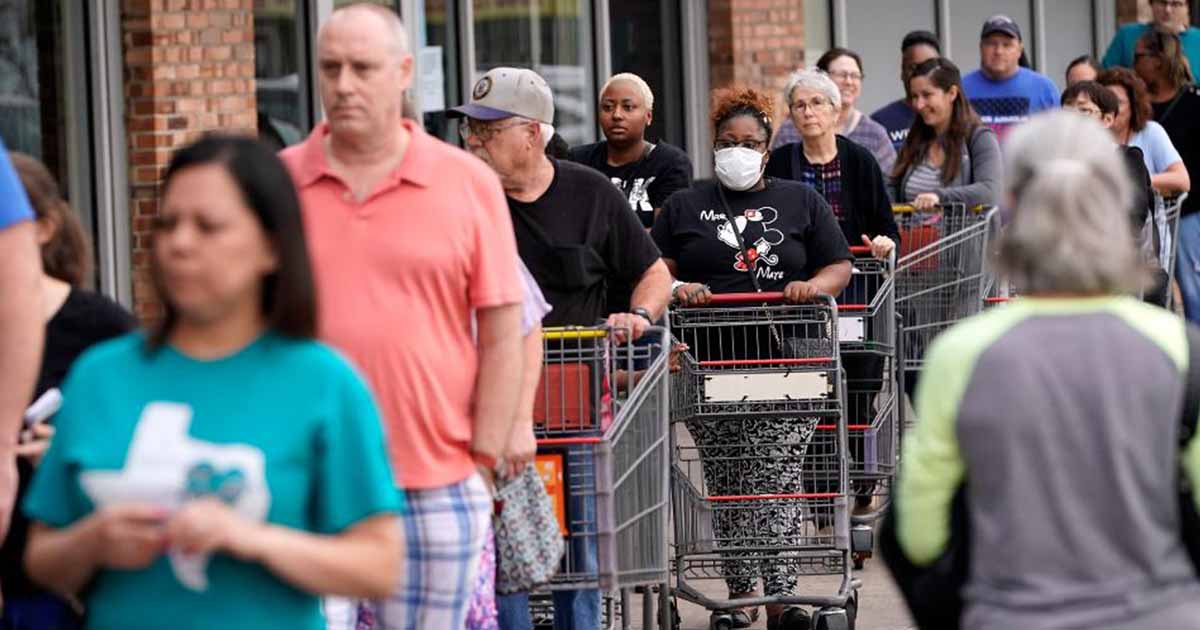President Donald Trump signed into law a coronavirus relief package that includes provisions for free testing for Covid-19 and paid emergency leave on Wednesday.
Reports said the Senate had earlier approved the House-passed bill, allowing the upper chamber to focus its full attention on passing the next relief package as a response to the coronavirus crisis.
Senate Majority Leader Mitch McConnell and other Senate Republicans had been critical of the House-passed legislation but expressed that it is urgent to provide relief to the American people in the midst of the coronavirus crisis.
McConnell specified Wednesday that he would not adjourn the Senate until it approves what lawmakers are referring to as a “phase three” economic stimulus package in response to the COVID-19 outbreak.
After getting an initial vote last week, the House approved a list of changes to the legislation on Monday, giving the chance for the Senate to take it up this week.
The House legislation was negotiated with House Speaker Nancy Pelosi and the Trump administration and the President showed its support for it.
To practice social distancing, McConnell stated ahead of the final vote that senators should take precautions while making the vote.
McConnell said in a statement:
“What we’ll do is have a 30-minute roll call vote. We want to avoid congregating here in the well.”
“I would encourage our colleagues to come in and vote and depart the chamber so we don’t have gaggles of conversation here on the floor. That’s particularly important for our staff here and the front of the chamber, so I would encourage everyone to take full advantage of a full 30-minute roll call vote. Come in and vote, and leave.”
He requested members to be aware of social distancing as they went to the chamber and leave and said:
“With that, I think we will be able to get through the voting that will occur in all likelihood later today without violating any of the safety precautions that have been recommended to us by the Capitol Physician and others.”
Donald Trump’s support for the House measure set things up for a broad, bipartisan vote in the House at the end of last week. The House then approved a set of changes to the legislation on Monday, making way for the Senate to consider it, which scaled back their efforts to offer millions of Americans paid sick and family leave.
The revised version of the legislation would still give a lot of workers with about two weeks of paid sick leave if they are being tested or treated for coronavirus or have been diagnosed with it. People who have been told by a doctor or government official to stay home because of exposure or symptoms were also eligible.
However, under the revised bill, those payments would amount to $511 a day, roughly what someone making $133,000 earns annually. The previous measure called for workers to get their full pay but limited federal reimbursement to employers to that amount.
On the other hand, workers with family members affected by the coronavirus crisis and those whose children’s schools have closed would still get up to two-thirds of their pay, though that benefit would now be limited to about $200 a day.


